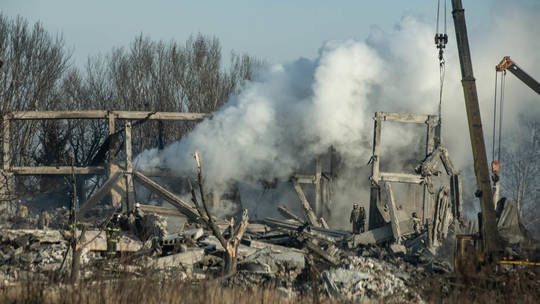World
Russia moves closer to two towns in the Zaporizhia region of Ukraine

Russian official media reported that forces from Moscow are moving closer to the Ukrainian villages of Orikhiv and Hulyaipole.
According to Russian official media, Moscow’s soldiers are moving closer to two towns in the southern Zaporizhia area of Ukraine, where combat has reportedly gotten worse this week after being stagnant for several months.
According to Vladimir Rogov, a Russian official stationed in the area, offensive operations were concentrated around two towns: Hulyaipole, which is located further east, and Orikhiv, which is located about 50 kilometres (30 miles) south of the Ukrainian-controlled regional capital Zaporizhzhia.
According to Rogov, “the front is mobile, notably in two directions: Orikhiv and Hulyaipole,” according to the news agency RIA Novosti.
According to him, the agency reported that there was ongoing violence in those regions.
“We are taking the initiative.”
After “offensive operations” in the Zaporizhia region, the Russian army stated for the second day in a row that it had taken “more favourable lines and positions.”
Outside the regional capital of Zaporizhzhia, in the village of Lezhyno, where Ukrainian forces have not yet gained control, it claimed to have targeted Ukrainian positions.
READ ALSO: Russian Wagner mercenary group is classified as a criminal organisation by the US
Germany, one of the key arms suppliers to Ukraine, has requested a review of its Leopard 2 stock in anticipation of a potential approval.
However, the Berlin government has been hesitant to deepen its ties with Ukraine at every turn; this reluctance is said to have historical and cultural roots.
In the meantime, during ceremonies and meetings held on Sunday to commemorate the 60th anniversary of their post-World War II friendship pact, France and Germany vowed to provide Ukraine with “unwavering solidarity.” The nations pledged to “stand with Ukraine for as long as it takes” in a unified statement.
As part of their agreement, they promised to “operate together for a European Union that is more resilient, sustainable, and able to act independently.” The treaty that brought bitter rivals France and Germany together 60 years ago still serves as the EU’s foundation today.
Germany’s hesitation has come under harsh criticism, especially from Poland and the Baltic states, two NATO members that were formerly under the power of Moscow and now feel particularly threatened by its revived imperial ambitions.
Mateusz Morawiecki, the prime minister of Poland, stated that his nation was willing to form a “smaller coalition” of nations that would send its Leopard tanks to Ukraine even if Germany refused to allow the transfer.
RESOURCES: NEWSPAPERS AND AL JAZEERA
